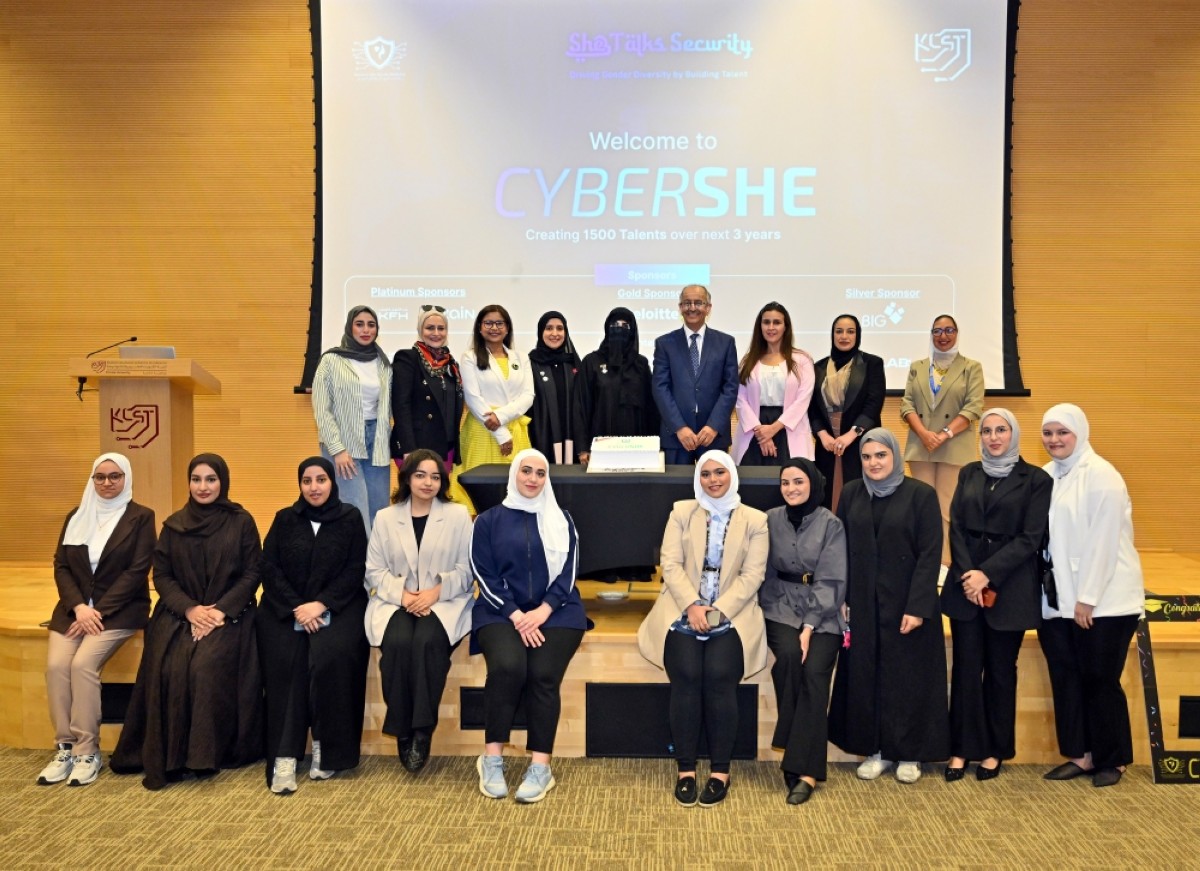KUWAIT: Zain announced its strategic partnership with the hands-on training program CyberSHE, launched by the Women in CyberSecurity Middle East (WiCSME) at the Kuwait College of Science and Technology (KCST). The program aims to empower women and bridge the gender gap in cybersecurity by equipping young women with the skills and confidence needed to excel in this fast-growing field.
This partnership falls under the umbrella of Zain’s Women in Tech initiative, which is dedicated to developing female talent in science, technology, engineering, and mathematics (STEM). It represents a core pillar in the company’s corporate sustainability strategy and reflects its ongoing efforts to promote diversity, inclusion, and the empowerment of national youth in digital and technological skills.
Zain delivered a special session, sharing its experience in cybersecurity and innovation. The session showcased the company’s leading practices and success stories that contribute to building a more secure and inclusive digital environment, while also offering participants practical insights to help them enter the job market with confidence and readiness.
The initiative aims to bridge the gender gap in cybersecurity.
The partnership is part of Zain’s Women in Tech initiative.
CyberSHE aims to train 1,500 women across the region over the next three years through an intensive training experience that includes technical workshops, soft skill development, mentorship programs, and internationally accredited certifications aligned with real-world job requirements in this vital sector.
The program’s goals align with Zain’s strategic vision to empower talent, accelerate digital literacy, and cultivate a workplace environment built on innovation and sustainable growth. These goals are embodied in the company’s Innovation Nation initiative, which has resulted in numerous successful projects over the past years and continues to cement Zain’s leadership in driving Kuwait’s innovation and digital transformation.
Zain’s support reflects its strong commitment to advancing women’s roles in technology and cybersecurity, and aligns with its broader efforts to support the innovation ecosystem in Kuwait. These efforts include its recent support of the Kuwait CyberChamps Competition for school students, its long-standing partnership with CODED Academy for programming education, and other key initiatives designed to prepare a skilled digital generation ready to shape the future of the national economy.
Many of Zain’s initiatives focus on youth and education, in response to the accelerating shift in both the economy and educational landscape toward digital fields. That’s why the company has made the development of digital and coding skills among youth a top priority.
Through its support for a wide range of programs and initiatives, Zain is committed to equipping the next generation of local talent with the skills demanded by modern job markets, skills such as programming, cybersecurity, artificial intelligence, digital transformation applications, and more.


















